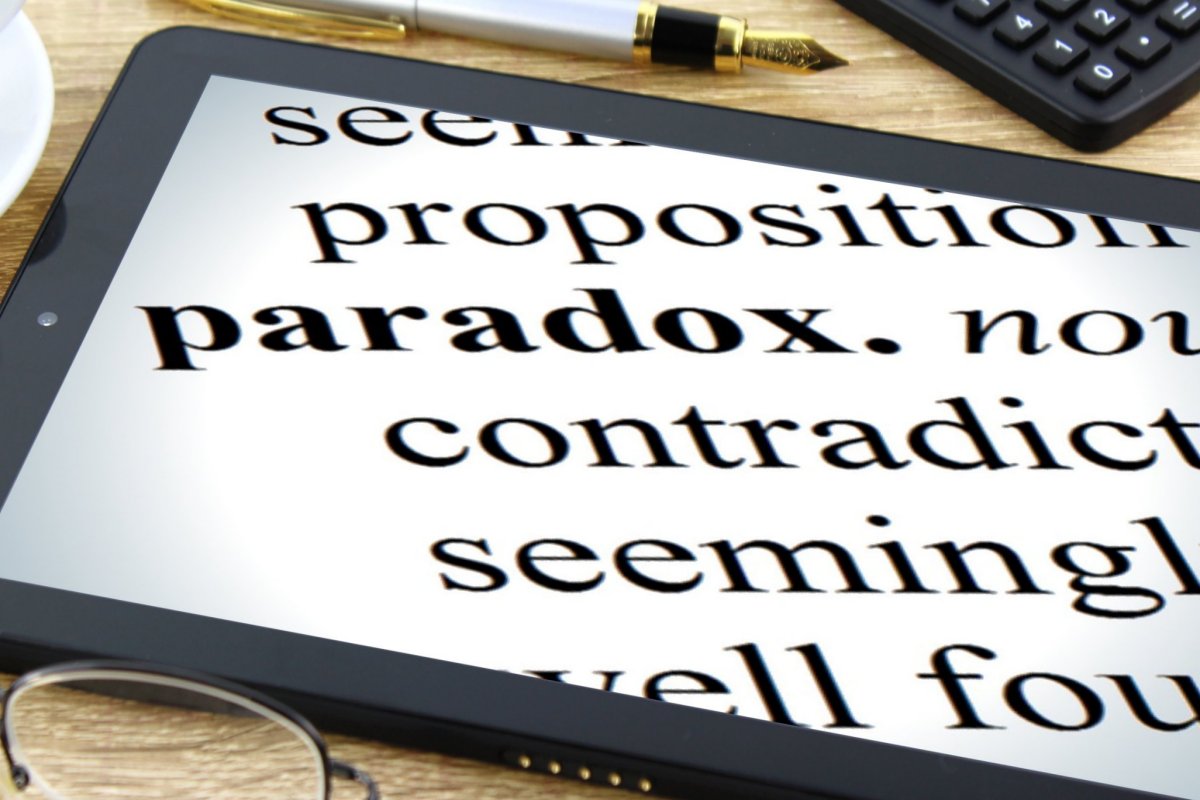By Taline Dia
A paradox is a statement, usually in the form of phrases, scenarios and anecdotes, that appears to be reasonable and rational but brings forth logical inconsistencies and self-contradictory conclusions. Paradoxes can serve as logical exercises, as logic is the premise of attempting to unravel the infinite qualities of a paradox. Here are four interesting and thought provoking logical paradoxes.
1) The Grandfather Paradox:
The concept of time travel is the driving force of this paradox. This paradox refers to the main contradictions and inconsistencies that arise from altering past events, and the main hypothetical used to explain this paradox is the event in which one travels back in time, prevents the conception of their parents or “ kills their grandfather” therefore erasing their own existence. This brings a contradiction and inconsistency to light which is expressed through the question: If one’s own existence was erased through one’s own actions of altering the past, then how can one’s actions of altering the past be carried out if one ceased to exist as a consequence of said actions? To further entertain the concept of time travel, parallel universes and new timelines are “answers” that are often provided to explain said contradictions that arise from time travelling to the past.
2) The Ship of Theseus:
This paradox is more straightforward and serves as a thought experiment. Suppose there was a ship, and over time the wood of the ship got replaced and the sails got replaced up until every single part of the ship has gotten replaced. Now let’s suppose a curious person gathers all the old parts of the ship that got replaced and reassembles it into another ship that is identical to the first one. The resulting questions of this logical paradox are “Which ship is the original?” and “What truly grants something the label of being original?” If we apply this thought experiment to humans, all of our cells have been replaced since infancy. Are we truly who we were since birth? DNA replication does come into play in cell division, but so does growth and development due to parts of the brain and hormones. This paradox leaves us questioning the identity of anything and everything.
3) The Grelling Nelson Paradox:
This paradox uses two words: Heterological and Autological. Heterological refers to a word that does not describe itself, such as “red is not red” ( the word red as I wrote it is black not red, so red does not describe itself), while Autological refers to a word that describes itself, such as “ noun is a noun”. Is “heterological”heterological? If the answer is no, then heterological does not describe itself. If it does not describe itself ( meaning it is not heterological) doesn’t that mean it’s autological? If it is autological then it describes itself, making it heterological. The questions don’t end there, but it is clear to perceive that the nature of these words bring forth this infinite paradox.
4) The Prisoner Paradox:
Last but not least is The Prisoner Paradox. Suppose a prisoner has been convicted and sentenced to death. The judge rules that the execution must be unbeknownst to the prisoner, and the prisoner is only given the information that he is being executed between the days of Monday through Friday. If this execution is to be a surprise, then Friday can be ruled out because if all the days (Monday through Thursday) have passed, then the prisoner knows that he will be executed on Friday, which ultimately eliminates the element of surprise. By the same logic, Thursday can be ruled out, therefore Wednesday and so on. So can the element of surprise really be retained?
Paradoxes are very often results of the deep philosophical thoughts of ancient philosophers; therefore, paradoxes exist as a result of abstract thought. Does that mean that paradoxes don’t really exist in reality? Our brains are an essential part of the physical world. Logical paradoxes overall exercise our ability to use logic, which can be part of the reason why they pique our interest.
